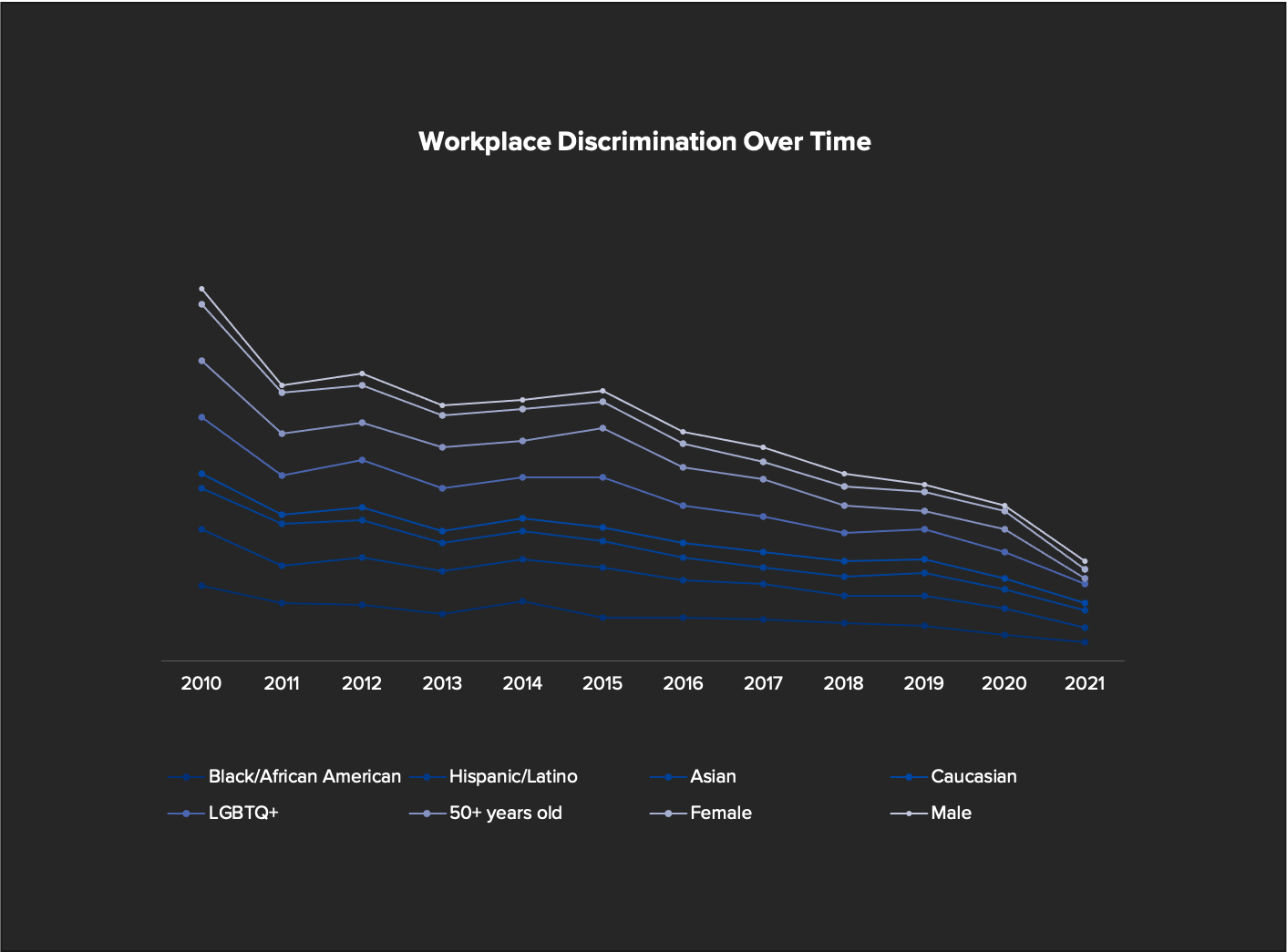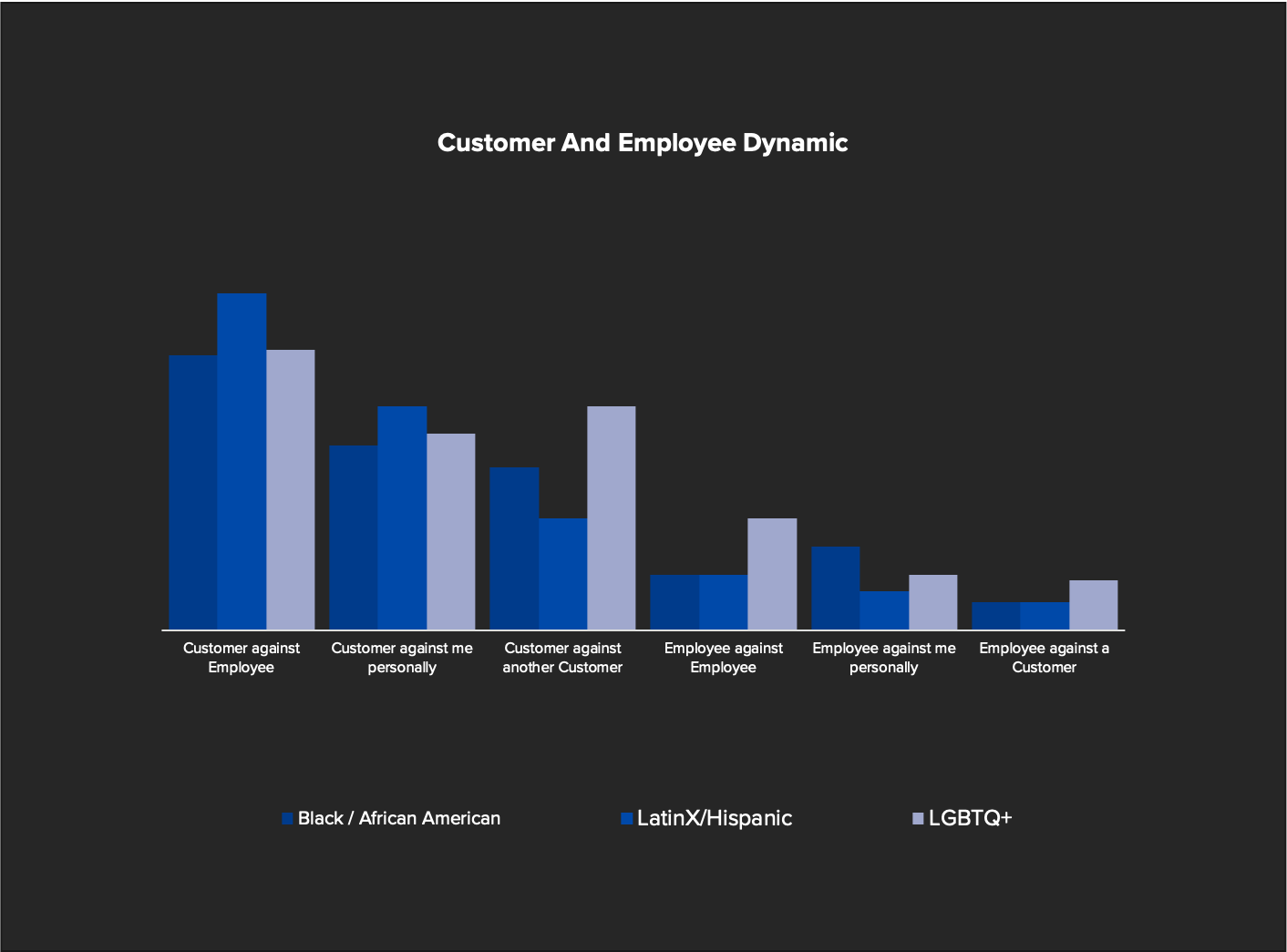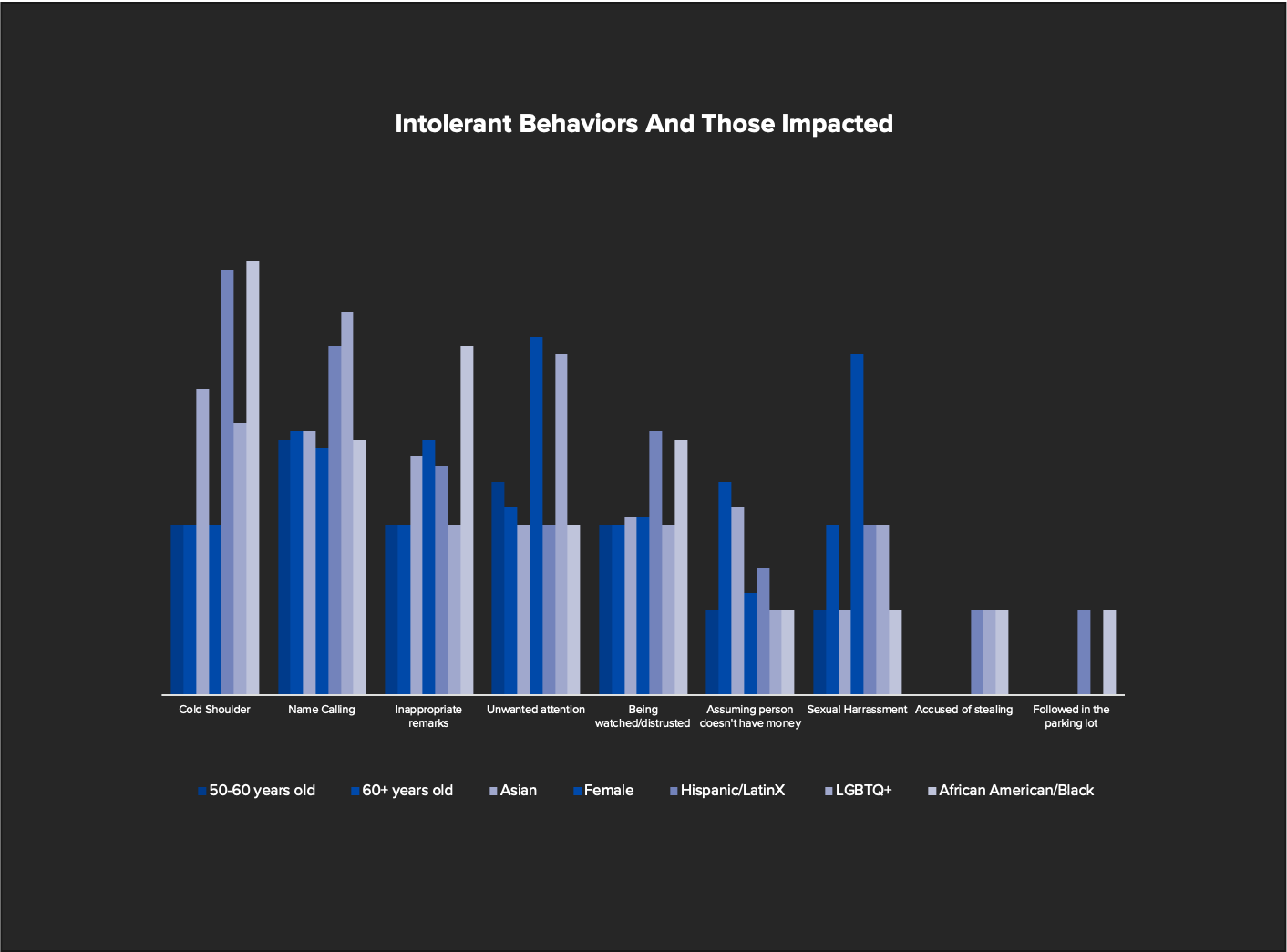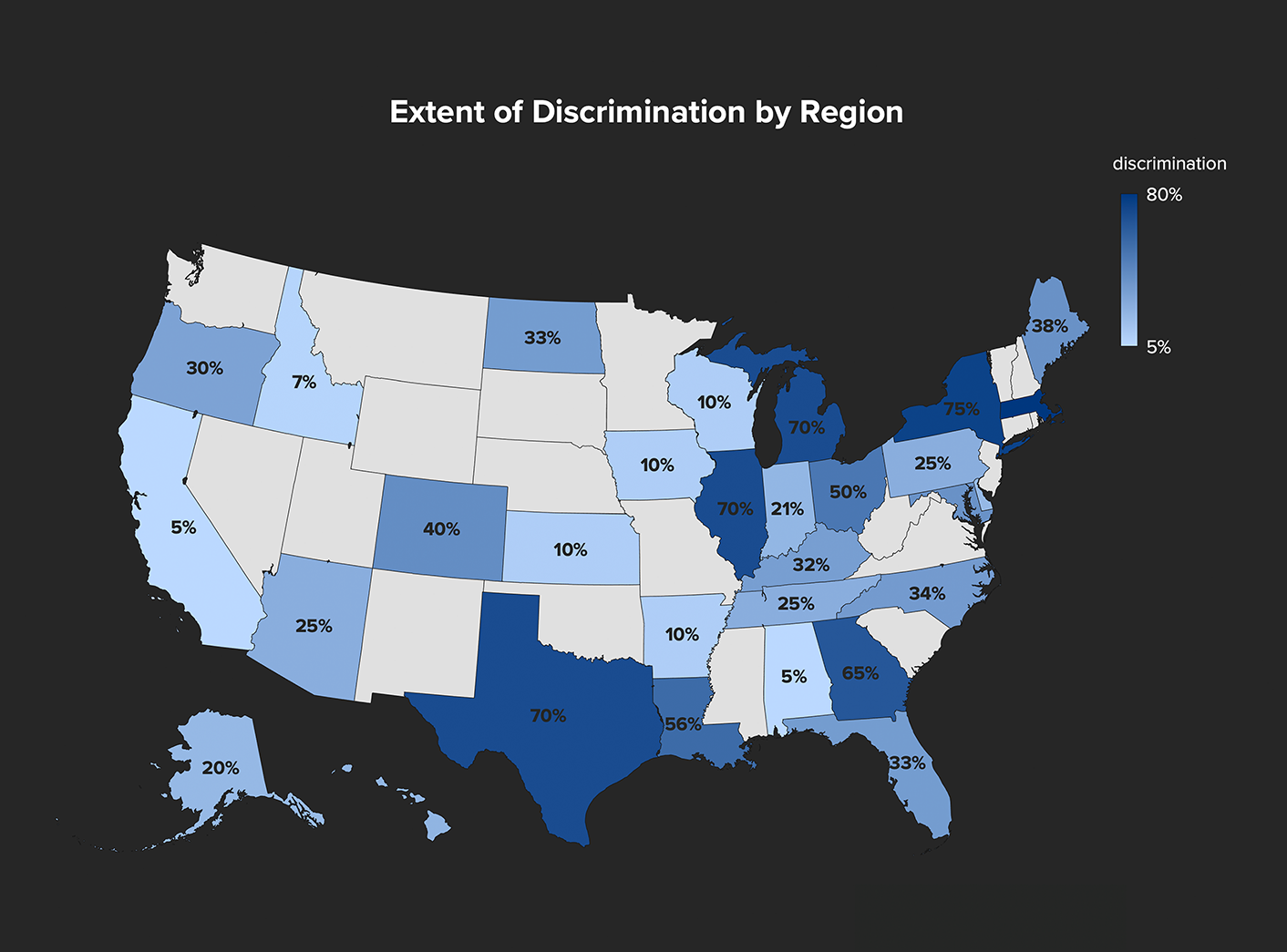Employee
Equity
Survey
Being reactive to inequality issues isn’t a winning strategy, especially when a safe and tolerant work environment positively impacts your bottom line.
This research will allow you to identify and root out discrimination before it’s too late.
Have Questions?
We're here to help.
Contact UsPricing & Plans
We offer a modular equity research approach. Employee responses are treated as highly confidential to ensure honest, accurate feedback.
Accelerated IDIS
$500 +
Fast and
affordable.
Turn-Around
4+ Weeks
Customization
Fully customizable
Approach
We explore first person accounts of workplace discrimination and microaggressions that are occurring in your organization.
Key Deliverables
Impactful quotes and stories.
Report on emerging themes.
Bespoke IDIS
$1,200 +
Quick insights with
expert analysis.
Turn-Around
5+ Weeks
Customization
Fully customizable
Approach
We dig into real life examples of discrimination to understand the specifics of if/how your organizational structure and policies have engrained bias.
Key Deliverables
-
Insights categorized and prioritized.
-
Impactful quotes and stories.
-
Report that unpacks the full spectrum of discrimination at your organization.
Bespoke Survey
$20,750 +
Custom research to
fit any need.
Turn-Around
5+ Weeks
Customization
Fully Customizable
Approach
We identify and quantify the extent and sources of discrimination and microaggressions to allow you to strategically focus your efforts on eliminating the root cause.
Key Deliverables
-
Custom Metrics that consider the unique dynamics of your organization, e.g. segment and measure differences in position type, team, region or other organizational structure.
-
Dashboards to visualize key metrics in one place.
Reporting
All your research projects are managed by senior research professionals who each have 10+ years of experience.
As a result, our reports are strategic and tell a story.

Workplace Discrimination Over Time
Incorporate our Equality Survey into your yearly review cycle for a valuable understanding of which areas need further improvement.

Customer and Employee Dynamic
Everyone is responsible for promoting a safe and inclusive workplace, but we help you know which groups are creating toxicity.

How Discrimination Is Manifesting Itself In Your Organization
Understand the who and how of discrimination in your organization.

Extent of Discrimination by Region
Knowing which regions or departments are experiencing higher levels of discrimination allows you to come up with efficient and effective solutions.
Key Challenge
(Excerpt from our recent article on microaggressions)
Recognizing microaggressions in the workplace is difficult because they are often not perceived as prejudiced and harmful interactions. According to Dr. Derald W. Sue, microaggressions are based on some of the same implicit biases and prejudicial ideas about people who are minorities or are marginalized in America. However, microaggressions are a little different from overt acts or comments because they typically don't have any negative intent or hostility behind them. Medical News Today reports how Sue defines three categories of microaggression:
Microassaults
When a person intentionally behaves in a discriminatory way while not intending to be offensive. An example of a microassault is a person telling a racist joke and then saying, "I was just joking."Microinsults
A comment or action that is unintentionally discriminatory. For example, this could be a person saying to an Indian doctor, "Your people must be so proud."Microinvalidations
When a person's comment invalidates or undermines the experiences of a certain group of people. An example of a microinvalidation would be a white person telling a black person that "racism does not exist in today's society."
Let’s work together.
info@zeitgeistresearch.com